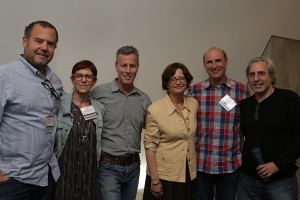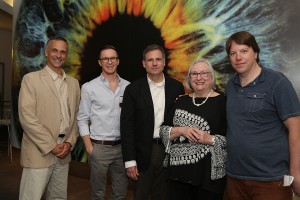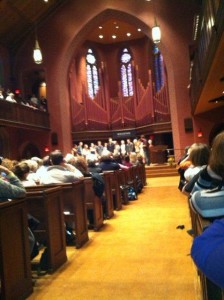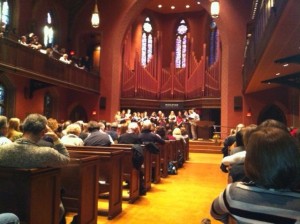Sunday’s Nicholas Kristof’s column (NYT online) was entitled “Professors, We need You!” He begins this way, “Some of the smartest thinkers on problems at home and around the world are university professors, but most of them just don’t matter in today’s great debates,” and then he quotes former Princeton prof Anne-Marie Slaughter: “All the disciplines have become more and more specialized and more and more quantitative, making them less and less accessible to the general public.”
I think there is a lot of truth to this line of thought, and it is worth emphasizing that most graduate programs do promote specialization at the expense of broader communication. Acquiring deep expertise in molecular biology, macroeconomics or romantic poetry is a vital endeavor, but that doesn’t have to mean that the experts lose connection with the broader public. Here at Wes, I can think of so many people on the faculty who defy the trend that Kristof is describing. I hesitate to name some individuals for fear of omitting others. But here goes.
Let’s begin with the programs developed here over the years that draw on deep expertise but accentuate cross-fertilization and translation skills. The College of Social Studies and the College of Letters have depended on faculty stretching beyond their given fields for more than 50 years. The teachers don’t do this as a tired obligation but engage in these programs with real passion. The same can be said of the College of the Environment, which explicitly connects to policy and public culture through its Think Tank. The new College of Film and the Moving Image combines deep expertise about cinema with public outreach in Middletown and popular historical scholarship in the widely celebrated work of Jeanine Basinger. Newer interdisciplinary investigation is also thriving at Wesleyan. I’m thinking of our folks working in Animal Studies or in Food Studies through, say, the Long Lane Farm. There are specialists in all these programs, but they are eager to go beyond their areas of specialization and have an effect on the world.
And I can’t help but think of Richard Grossman, an economics prof who has been churning out op-eds on monetary and banking policy with great regularity, even as he publishes important scholarly economic history books. Or I think of Gina Ulysse (who teaches anthropology, FGSS and African-American Studies), who has published ethnography and also engaged in dance, spoken-word and performance pieces. I just read some of her art criticism on the Huffington Post, and I know she is also preparing her own installation/performance. That’s not what she was told to do in graduate school.
Mary-Alice Haddad in government has combined her research on civic mobilization with teaching students how to participate in political movements in our own region. Her real expertise doesn’t put her in a cloister, to use Kristof’s word; it helps her engage vital social and political issues. Similar things might be said about anthropologist Kēhaulani Kauanui’s work with indigenous people around the world or economist Gary Yohe’s efforts to understand questions of probability and risk in regard to climate change. Both have worked with the United Nations, and both reach wide audiences with serious scholarship.
Our scientists, of course, are taking on big questions in specific research through which they can make a measurable difference. This may be in regard to epilepsy (Laura Grabel, Janice Naegele, Gloster Aaron), or muscular development and degeneration (Stephen Devoto). As a group, the science faculty has undertaken an initiative to help students from under-represented groups prepare for graduate work. This pipeline program can have a powerful effect on a number of fields and on our public culture.
Historians are no strangers to a public role. Magda Teter, for example, has explicitly used her deep archival research on Polish-Jewish relations to influence the way groups interact today. Lois Brown, professor of African American Studies and English, knows more about particular slave lives than anyone alive today. She is a specialist. But she can also be an impassioned contributor to educating Americans about slavery and abolitionism through mass audience public television programs.
Speaking of “mass,” I should definitely mention Scott Plous’ enormously successful Social Psychology class on Coursera. It wasn’t just that Scott attracted more than 200,000 people to his class, it was that at every turn he connected his teaching to action in the world. On campus and on his Social Psychology Network, Scott is a leader in “action teaching.” On campus and online, he aims to ensure that the lessons of social psychology — lessons about how we live together — are not “merely academic.”
The Allbritton Center for the Study of Public Life (which houses the Patricelli Center for Social Entrepreneurship, Center for Community Partnerships and Prison Education and the Quantitative Analysis Center) can stand for countless other efforts that our faculty make to connect deep academic learning to work in the world that makes a difference.
This intellectual cross-training and the translational research that is a part of it have been hallmarks of the Wesleyan experience for decades – and reason for pride for all involved with this institution.
And for the dozens and dozens of colleagues I could have mentioned in this blog…please forgive me. But perhaps you (or your students) will send in examples through the comments…






